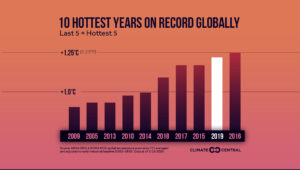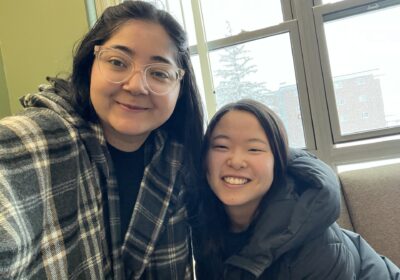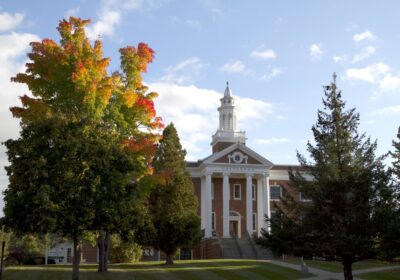Climate change issues heat up
Matthew Orchard has faced some rather large fears recently with the Australia bushfires. While he works in Brandon as a tour operator, he wonders about the safety of his family in Warrnambool on the South-Eastern coast of Australia in the state of Victoria.
“Growing up in Australia, you come to see fires as a fairly regular and natural occurrence, however, the Australian fires that started in 2019 were immediately more noticeable and scary due to the massive scale and size of them, and because of how widespread they were across the country. It was clear after only a day or two, that these fires were not anything like the ones I remember as a kid,” he said.
Over 2,500 homes in Australia have been destroyed by the bushfires that started burning in September of 2019. Many Australians have been left with nothing but the charcoal that lies in the rubble of what used to be their sanctuary to come home to after a long day.
The Australian bushfires are fires that have a high heat output and grow slowly. They are common, but when they started last year, there wasn’t the expectation of them taking over the majority of Australia’s most populated areas.
Scott Roper, a natural science professor, found the news about the fires not that surprising, but the magnitude of them was shocking.
“Australia for the last few years has been having some severely hot weather. They’re in midst of a drought, I think that started in 2017, and the climate itself has actually been getting warmer and drier in parts of Australia. This seems to be something that’s been happening for, you know, quite a while actually,” he said.

The bushfires have become such a large issue amongst Australia that a state of emergency has been called in the capital, Cranberra. According to the BBC, the blaze has burned over 18,500 hectares, which is the equivalent to roughly 54 Central Parks put together.
These fires are another example of the dire need to put a stop to climate change, scientists say.
Natural sciences professor, Mary Droege, began explaining climate and how it can be measured typically in a 30-year average of weather.
Droege also mentioned how people often take “one sliver of data” and use that as a positive in the argument that climate change isn’t real. Just because there’s a month with normal and typical weather for an area, doesn’t mean that the climate is okay, she said.
“You look at it for decades, and you see these trends going up,” she said.
Even though people may think that the smallest thing won’t make a difference, it does. Idling less when you pick up a friend can save carbon dioxide from going into the air. Taking quicker showers can stop large usage of water. Rinsing and recycling a soda bottle or coffee cup can save our oceans from continuing to be filled with waste.
Castleton student Mackenzie Kuban reflected on how she uses reusable straws and mugs to cut back on making waste.
“I think it’s really important to keep our environment clean. Living in Vermont all my life, I’ve never seen how much trash people make, but I recently went to Boston and there was a strip where you couldn’t even see the sidewalk because of how much trash and wrappers were on the ground and it makes me feel sick that people could just throw something out of their car and not care what happens to the environment around them,” she said.
Adira Maynard is another student who does what she can at Castleton to save the earth. She mentioned that when she was growing up, her mom chose to hang clothing on lines rather than using the dryer, which uses more energy.
“I don’t know that much about what to do to prevent climate change, but I know not to leave machines like cars running or taking a shower while the dishwasher is running so we can save water,” she said.
Kuban mentioned how people should really start caring more about their home.
“We only have this planet, and even if you don’t believe in climate change, keeping our planet clean is important. If we aren’t careful, our state will look like that Boston sidewalk, just full of trash,” he said.






